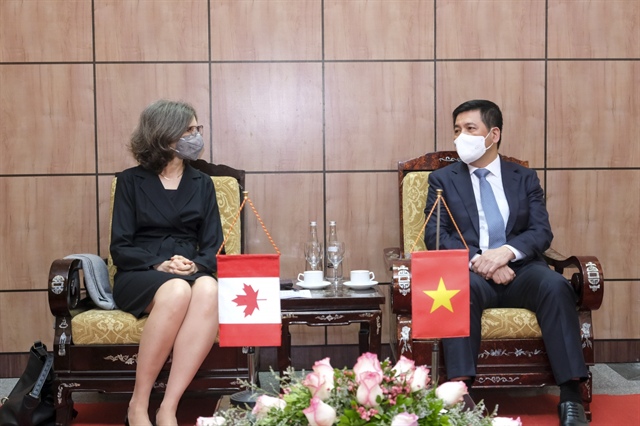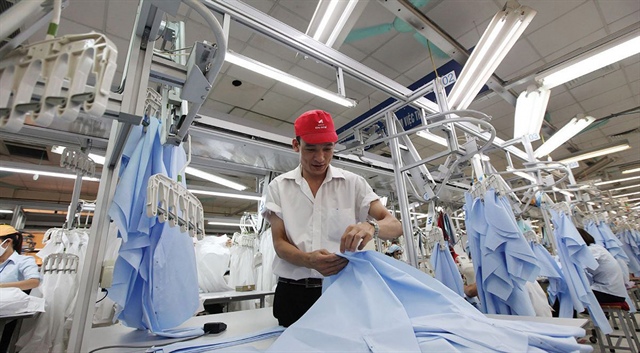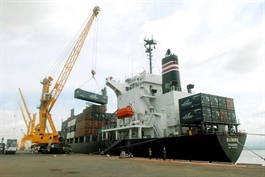Opportunities for Vietnam-Canada economic, trade cooperation
Opportunities for Vietnam-Canada economic, trade cooperation
Despite the impact of the Covid-19 pandemic, economic cooperation between Vietnam and Canada continues to develop with positive results, paving the way for the two countries to boost bilateral trade.
Vietnam and Canada upgraded bilateral relations to a comprehensive partnership in November 2017. According to the Ministry of Industry and Trade (MoIT), economic and trade cooperation between the two countries has expanded continuously in the recent period, especially since the Comprehensive and Progressive Agreement for Trans-Pacific Partnership (CPTPP) took effect in January 2019.

Minister of Industry and Trade Nguyen Hong Dien (right) talks with Canadian Ambassador to Vietnam Deborah Paul |
Vietnam currently is Canada’s largest trading partner in ASEAN, while Canada is Vietnam’s third largest trading partner in the American region, behind the US and Brazil. In 2021, trade between Vietnam and Canada reached US$6.03 billion, a year-on-year increase of 18.5 percent. This included US$5.27 billion worth of Vietnam’s exports to Canada, up 20.8 percent, and US$760.7 million worth of Canadian exports to Vietnam, up 4.7 percent. By November 2021, Canada was the 14th largest foreign investor in Vietnam, with 231 projects totally worth more than US$4.81 billion. Canadian investment projects in Vietnam are said to be of high quality in fields such as hotel service, insurance, and renewable energy.
At a recent meeting with Canadian Ambassador to Vietnam Deborah Paul, Minister of Industry and Trade Nguyen Hong Dien praised the positive results of bilateral cooperation in the recent period despite the impact of Covid-19, and emphasized the market’s attraction and the complementariness of the two economies, as well as opportunities presented by the CPTPP for bilateral economic, trade and investment relations.
However, Minister Dien said bilateral trade remains incommensurate with the potential of the two countries. Vietnam has the potential to increase the export of textiles and garments, footwear, farm produce and wood products to Canada, while Canada is a reliable manufacturer of machinery, equipment and materials for industrial production. “The two sides need to strive to resolve difficulties and create favorable conditions for businesses to access each other’s markets,” Minister Dien said.
Minister Dien also expressed his concern over increased trade remedies that Canada applied to Vietnamese goods in the recent period. He requested the Canadian side to carry out trade defense investigations of Vietnamese products in an unbiased and fair manner and in accordance with regulations of the World Trade Organization (WTO). He said the two sides need to facilitate trade and investment cooperation in the fields that interest Vietnam and in which Canada has advantages, such as support industries, manufacturing engineering, metallurgy, chemicals, electronics, and especially renewable energy.
Ambassador Deborah Paul emphasized that cooperation between the private sectors of the two countries has expanded in a variety of fields, including agriculture, biodiversity conservation, and green energy. “Vietnam is Canada’s leading trading partner in the region. Canada wants to cooperate tightly with Vietnam in the negotiation process of the ASEAN-Canada Free Trade Agreement,” the ambassador affirmed.

Textiles and garments are potential Vietnamese exports to Canada |
Vietnam is one of the world’s top 10 economies in terms of openness level, with the ratio of foreign trade to gross domestic product (GDP) reaching 197.4 percent in 2019. Vietnam has trade relations with more than 230 foreign markets and FTAs with 60 economies. Major FTAs such as the CPTPP, the EU-Vietnam Free Trade Agreement (EVFTA), and the Regional Comprehensive Economic Partnership (RCEP) will provide a bridge for effective business cooperation between Vietnam and the world in general, and Canada in particular.
Vietnam and Canada have signed a memorandum of understanding (MoU) to establish a Joint Economic Committee. The MoU is expected to lay the foundation for Canada to increase dialogue and cooperation in priority areas with Vietnam.
| To accelerate the restructuring of the energy sector, apart from internal efforts, the MoIT is seeking cooperation and support in terms of investment capital, technology and management skills from development partners, including Canada. |
























